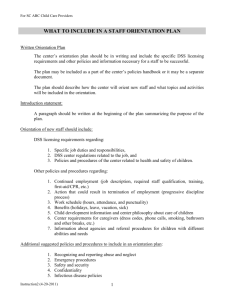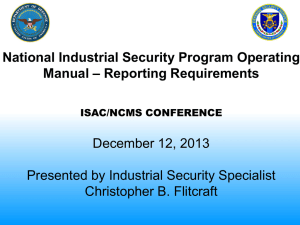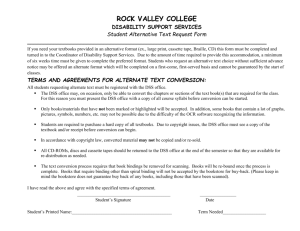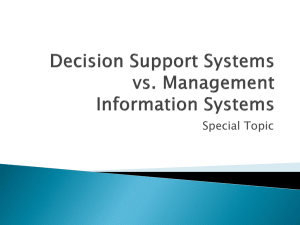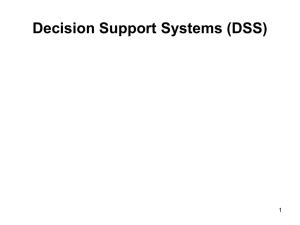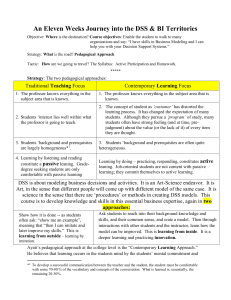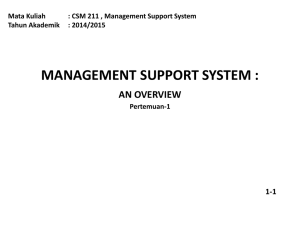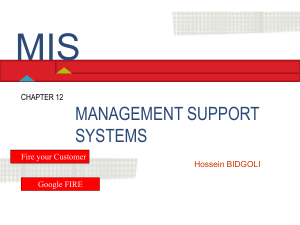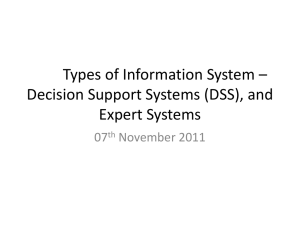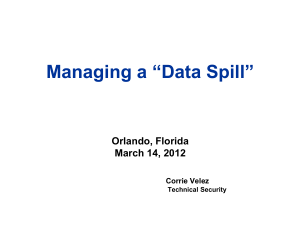DSS Role In International Security Overview August 2011
advertisement
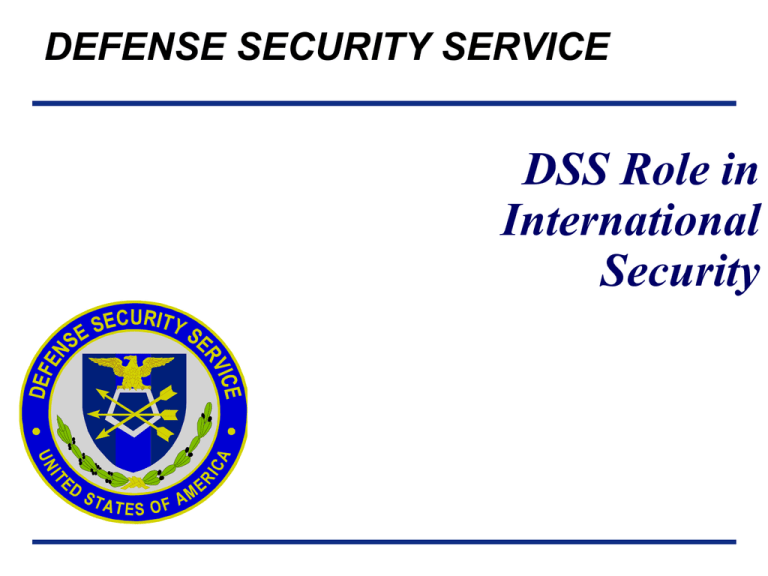
DEFENSE SECURITY SERVICE DSS Role in International Security What is an International Program • A lawful and authorized government or commercial effort in which there is information and/or technology transferred from one country to another – Commercial Programs initiated by a contractor such as Direct Commercial Sales (DCS) – Government Programs initiated by a government entity such as Foreign Military Sales (FMS) or a cooperative agreement. DSS Authority • Arms Export Control Act (AECA) – Gives the President of the United States the authority to control the import and export of defense articles and defense services – Places certain restrictions on American arms traders and manufacturers, prohibiting the sale of certain sensitive technologies to certain parties and requiring thorough documentation of such trades to trusted parties DSS Authority • 124.1(b): MLA/TAA copies provided to DSS by DDTC • 124.3 and 125.3: Classified transfers and disclosures IAW NISPOM • 125.5: Classified visits are IAW NISPOM • 125.9: Licenses forwarded to DSS for authorization, endorsement/decrement • 126.13c: Technology Control Plans submitted will facilitate license processing • 127.5: In cases of exports of classified tech data or defense articles, DSS may take appropriate action to ensure compliance with the NISPOM DSS Authority • General Security Agreements also known as GSOIA and GSOMIA (adding military, depending on scope and year) – Negotiated through diplomatic channels, requires each party of the agreement to afford to the classified information by the other substantially the same degree of security protection afforded it by the releasing government. – Contains provisions concerning limits on the use of the information – Restrictions on third party transfers and proprietary rights – Provides for reporting, the lose or compromise or the possible lose or compromise of classified information DSS Authority • Industrial Security Agreement – Negotiated by the DoD as an annex to the GSOIA or GSOMIA with foreign governments which DoD has entered into arrangements involving industry participation – Includes provisions for: • • • • • Information handling Security classification guidance Visits Exchange of security assurances Designates a responsible government agency to administer the agreement (DSS) DSS Authority INDUSTRY D State Department S Security Agreement S Department of Defense International Security Role • Determines eligibility of personnel and facilities for access to classified information – Adjudicate clearances for contractors – Provides security assurances on U.S. contractor facilities and individuals to foreign governments – Validates clearance information for visit authorizations from U.S. contractors to foreign locations • Oversees contractor compliance with security provisions of international contracts and agreements • Mitigate Foreign Ownership, Control or Influence (FOCI) for US companies with classified information International Security Role • Oversight responsibility for plant visits by foreign nationals • Provide interpretations and guidance of the NISPOM • Coordination of the Secure Communication Plan with NSA, Foreign government and U.S. Program Office • Coordinates and approves contractor international hand carry and transportation plan arrangements International Security Role • Security violation reports to foreign governments • Provides advice and training to cleared contractors and selected foreign governments – Industrial security – Personnel security investigations – Information security Contact Information • • • • • Richard Stahl Byron Jenkins Tom Jessen Jason Heit Bron Stacey Division Chief Western Northern Capital Southern International@dss.mil Regions Conclusion QUESTIONS?
